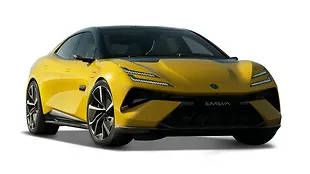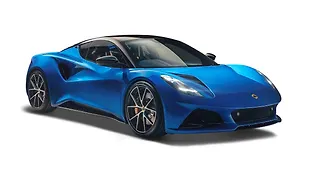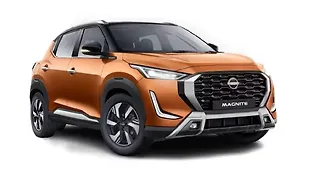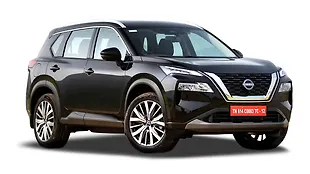Introduction

The Sunny has been around for a few years now, but it hasn’t been the success it needed to be for Nissan India despite being a very strong package. Somehow, all its good traits were construed (rightly) as value, and it never entered the brand-conscious buyer’s options list. Now Nissan aims to remedy that and inject a big dose of premium-ness to the 2014 Sunny. Does it work?
Exterior

This is a facelift, so the basic shape of the Sunny is retained. However, the front is where major changes have been wrought, beginning with a new, chromed trapezoid grille and massive boomerang-shaped headlamps. The chrome doesn’t stop at the grille, the new, aggressive bumper is underscored with chrome and the fog lamps also have L-shaped chrome underlining as well. It may get a little too in-your-face for some, but this is not a bad thing, because it is certainly an improvement over the outgoing model’s bland face. The three-quarter panel reveals a new, more angular mirror housing with integrated signals. Nissan hasn’t done a halfway job with these, either: the original signals have disappeared from the fenders. The alloy wheels have a new six split ‘Y’ shaped spokes, but the tyres remain the same size as before. Our test car was shod with JK Vectras instead of the standard Bridgestones it used to be shod with.

The roof also exhibits a single change – the long, thin antenna has made way for a rear-mounted shorter, thicker aerial. At the rear, not much has changed. The tail-lamps remain the same, but the rear bumper has changed. The corners get an extra horizontal crease that rises towards the rear. This, coupled with the new matt black underside that cuts into the visible area at the low end of the bumper helps reduce the visual height of the rear more neatly than the previous car’s busy, all-painted triple horizontal creases low down on the bumper. The chrome strip above the number plate on the top-spec variants is now a more complex piece, and under it hides the reversing camera.

 None of the Sunny’s sheet metal has changed, but it is marginally longer and taller than before. It will also be available with a new paint scheme, a deep metallic purple that appears black until you view it in bright sunlight, when it shows off its true colours. This same paint used to be available on the previous-generation Honda City, and its appeal has not diminished at all with the 2014 Nissan Sunny.
None of the Sunny’s sheet metal has changed, but it is marginally longer and taller than before. It will also be available with a new paint scheme, a deep metallic purple that appears black until you view it in bright sunlight, when it shows off its true colours. This same paint used to be available on the previous-generation Honda City, and its appeal has not diminished at all with the 2014 Nissan Sunny.
Interior

The interior of the Sunny also sees a few changes. The two biggest ones are the steering wheel, which now has a triangular boss, a much more premium brushed aluminium finish, and even a toggle switch to skip tracks. It is taken from the Japanese-market Sylphy, and it helps to liven up the interior. The instrument cluster has the same fonts, but the backlighting and digits of the instrument cluster, including that of the multi-function display, are now white. It is certainly more modern than the amber backlighting of the outgoing model. The centre console is the next big change, it gets the piano black finish that we’ve seen on the Micra. It looks better, but fingerprints show up way too quickly on this surface. The audio system also gets an upgrade, with Bluetooth and iPod connectivity available as standard on the top-end XV diesel variant that we drove. The colour screen is decently sized and has very good graphics and colours, but isn’t a touchscreen unit, to some people’s disappointment. It also displays the feed from the reverse camera when the car is slotted into reverse gear. Navigation is intuitive – full marks to Nissan for an easy-to-use head unit, but if they could have programmed the right-side scroll wheel to also skip tracks the way it scrolls through parameters, it would have fixed one of the two things I didn’t like about the audio system. The second thing is the lack of a three-band equaliser. Yes, the speakers are quite good, but that three-band equaliser would have allowed me to set the output perfectly. Bluetooth telephony is packaged along with the streaming audio.
The gearshift lever gets a silver insert on the top, making it feel more premium than the previous car’s all-beige lever. The upper left side of the dashboard also gets a crease across it, lending it character but Nissan has inexplicably left out the upper glovebox that I find so useful in the Micra. All the other goodies remain: a comprehensive multi-function display that shows distance to empty, average consumption, instant consumption and the seven-step intermittent setting for the wipers.

The rear still doesn’t get an AC vent that feeds air from an actual duct, it still merely recirculates the air from the front of the cabin. Segment leader Honda City offer three charging points to the Sunny’s one. Where the Sunny still delivers in spades is rear seat comfort – the legroom is enough for two NBA players to sit comfortably, and the rear headroom is good enough for at least a point guard from the league. Another nod to the rear seat is the two extra roof-mounted reading lamps for the rear passengers.
The boot hasn’t changed at 490 litres, which makes the Honda City the largest boot in the segment. Interestingly, Honda counts the space occupied by the spare wheel as well in their boot space figures, whereas Nissan’s figure is based on the usable space.
The other area where Nissan has improved the Sunny in a significant way is the NVH characteristics. The diesel used to feel a little agrarian, with clatter making its way into the cabin, and the engine becoming particularly noisy when revved hard. The new car has no sound deadening material under the hood, but there seems to be much better firewall insulation which has not only eliminated the engine’s harshness, but also kept the decibel level down no matter how much you rev the engine. Wind and road noise also seemed to have improved, but I can’t say for sure at the moment because Port Blair, where Nissan held the drive, is a naturally quiet place and its roads don’t lend themselves to much high-speed cruising. We will update this when we get the Sunny for a review on familiar (and noisy) roads.
Engine & Performance

Nissan has stuck to the two engines it was already offering, the 1.6-litre naturally aspirated petrol and the higher-selling 1.5-litre K9K diesel. The petrol now has two different power outputs, 99bhp for the manual transmission and an extra two bhp for the CVT. Torque figures for both transmissions are identical at 134Nm. The diesel generates 86bhp and 200Nm, but the ECU has been remapped for better response and efficiency – the ARAI rating has now gone up by 1kpl for the diesel. The gearing hasn’t changed, but the remap has made it slightly harder to take off from rest, but at the same time, the strong pull that the engine used to exert from walking pace in second has smoothed out, as has on-off throttle transitions.
The diesel was the only car we managed to drive, but do keep an eye out for an update on the petrol and automatic variants.
Ride & Handling

Nissan has changed nothing about the Sunny’s ride and handling. That means it gravitates towards being a little soft, but handling is very predictable and confidence-inspiring. Our test car seemed to transfer a little more bumps and sharp ridges to the cabin, but that could also just be the JK Vectras, which have a hard compound for better fuel efficiency. This extra stiffness meant that steering feel was better when we were doing around corners, so it was a fair tradeoff.
Verdict

The Sunny has always been the stepson of the segment, recommended to those who want value rather than features or snob value. No more, not with the features list that is now available with the Sunny. Nissan has gone for a relatively safe strategy and not offered a top-spec petrol (yet), instead preferring to promote the diesel. If Nissan manages to keep the 2014 Sunny within Rs 20,000 of its predecessor, it will make an extremely strong case for itself if you’re looking for an alternative to the segment’s usual picks, the Honda City and Hyundai Verna.

![Nissan Sunny [2011-2014] Image Nissan Sunny [2011-2014] Image](https://imgd.aeplcdn.com/272x153/cw/cars/discontinued/nissan/sunny-2011-2014.jpg?q=80)

























